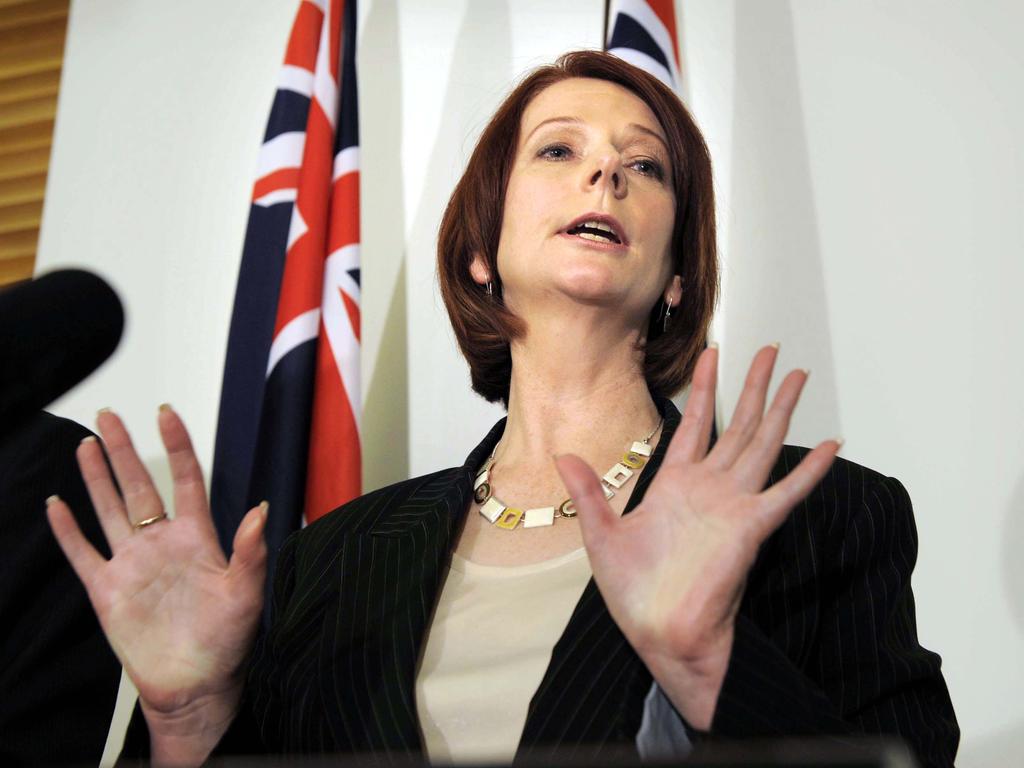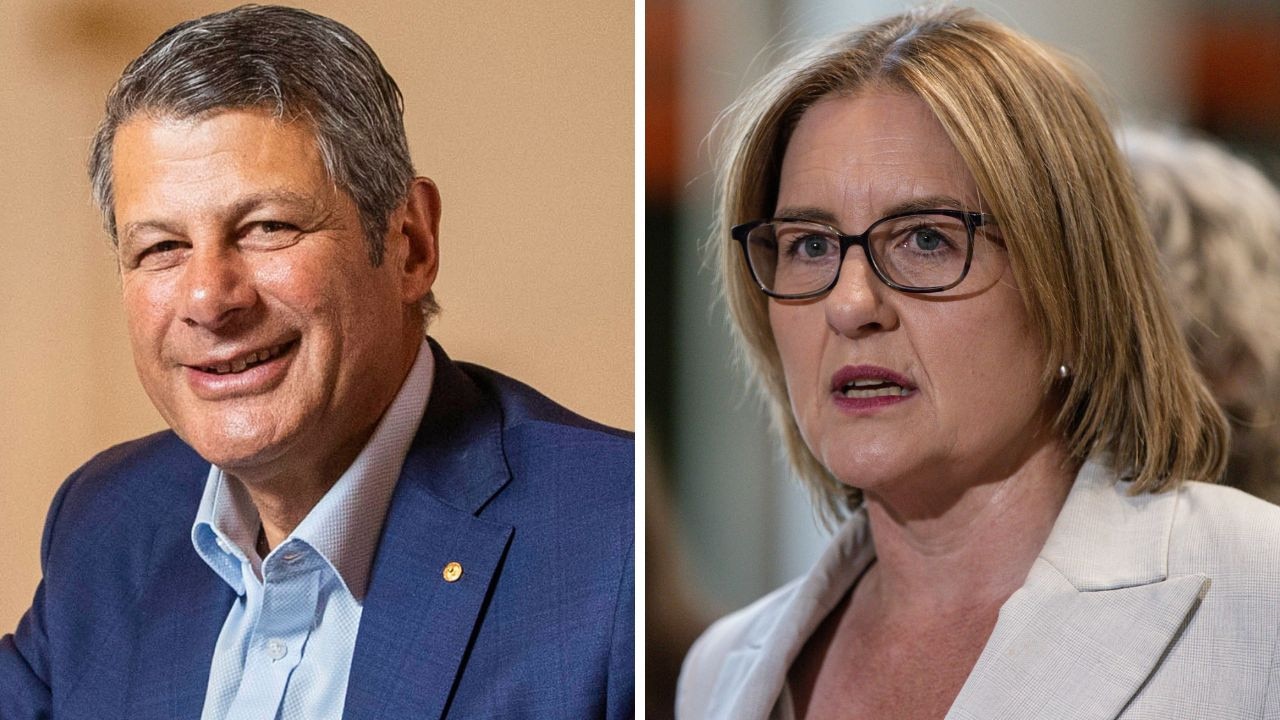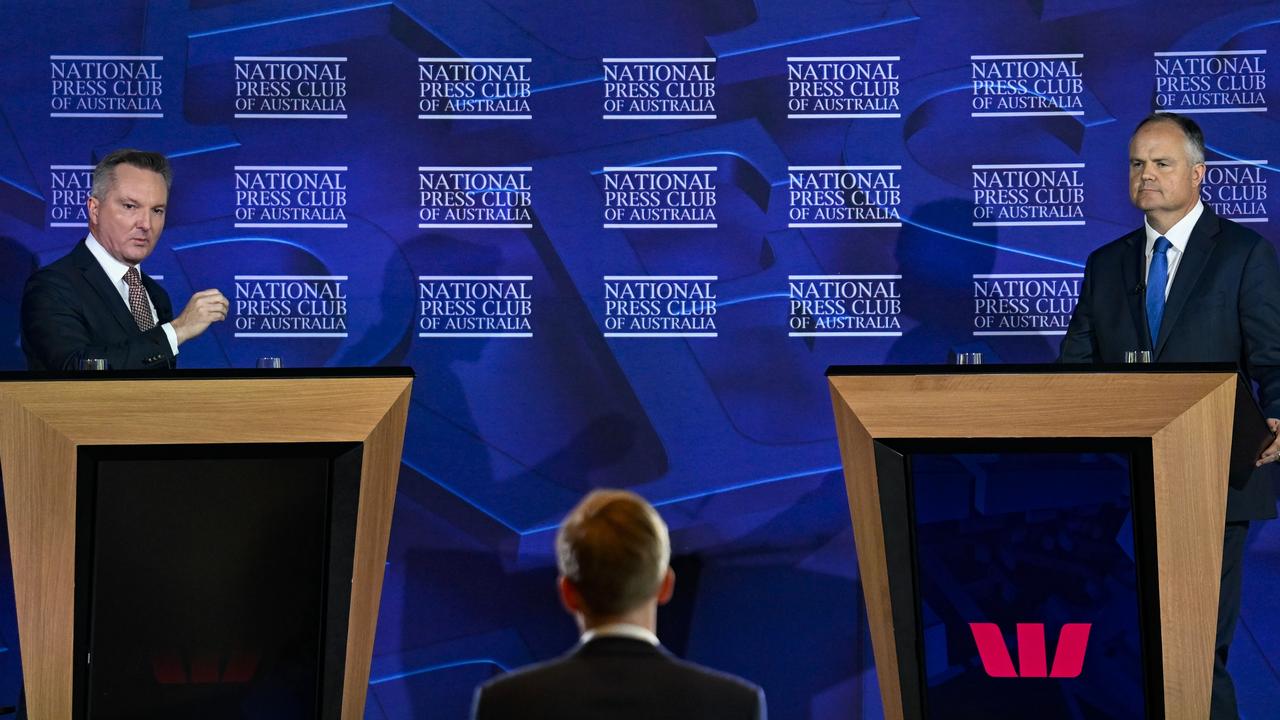Why the Julia Gillard biography was shelved
It was one of the mysteries surrounding Julia Gillard’s historic time in office: why her highly anticipated, unauthorised biography was abruptly withdrawn in 2011.
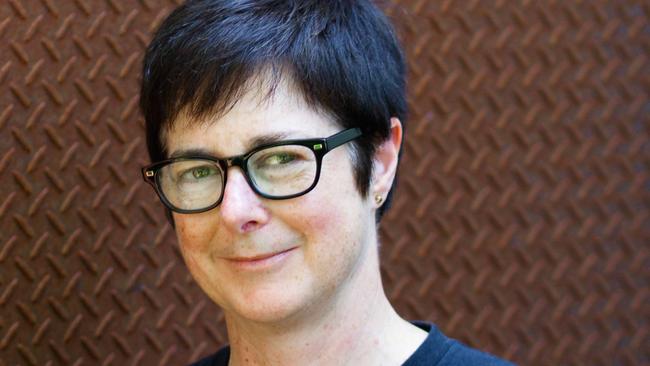
It was one of the mysteries surrounding Julia Gillard’s historic time in office: why a highly anticipated, unauthorised biography of the country’s first female prime minister – which reportedly had ALP powerbrokers rattled – was abruptly withdrawn.
That biography, by author Chris Wallace, who had written books about Germaine Greer and Donald Bradman, was due to be published in 2011 by Allen & Unwin, who promoted it as its “book of the year’’.
When the title was cancelled in mid-2011, there was speculation Wallace had encountered legal problems or irreconcilable editorial tensions with her publisher. Wallace told The Sunday Telegraph: “I’m adopting the Benjamin Disraeli position (never complain) ‘never explain’.”
Now, Wallace, a former press gallery journalist, has addressed the mystery for the first time in an exclusive interview and in her new book, Political Lives: Australian Prime Ministers and Their Biographers. In a startling admission, Wallace revealed she cancelled her own biography, to prevent the book being “drastically misused” to undermine Gillard, who, she said was already under attack from internal ALP enemies, “crazed” Coalition politicians running a “viciously misogynist” campaign, and shock jocks and journalists who were behaving like “jihadists”.
In an extract published in Review, Wallace writes that an “embittered” Kevin Rudd – whom Gillard had deposed in 2010 – and opposition leader Tony Abbott, “were coming for her”, adding: “Labor’s agony at the unprecedented tearing down of a serving Labor prime minister was palpable.’’
Wallace said Australia’s first female leader was in 2011 facing “this incredible pincer movement; viciously attacked by people within her own party allied with Rudd, and viciously attacked without by the Abbott-led opposition. It was a uniquely vicious situation.’’
In this unparalleled and “toxic” environment, Wallace feared “every crazed Coalition politician and shock jock’’ would comb her text “for bullets to fire” at Gillard. So, even as the publicity campaign for the biography was being planned, she withdrew her book and returned her “significant” advance to Allen & Unwin.
In a candid interview, Wallace said she was convinced the light and shade within her nuanced biography would have been turned into “black and white and had the Christ beaten out of them, very unfairly. That concerned me. It was a real feeding frenzy … Alan Jones basically saying she should be stuffed in a chaff bag and thrown out to sea, the horrendous demonstrations outside Parliament House. Tony Abbott, in a really deeply unattractive and unfair way going for her, and Gillard’s enemies inside the Labor Party acting equally treacherously against her.
“It wasn’t a matter of me being a Julia Gillard supporter or not. I could see my book being really drastically misused … No fair-minded person would have wanted to inadvertently join in the pack attack on Gillard at that time. It was horrendous.’’
The author’s revelations about withdrawing her biography to effectively shield Gillard and her government from further attack raise questions about self-censorship, the relationship between biographers and their subjects, and the potential of political biographies to make or break leaders. These themes are explored in Political Lives, released next month.
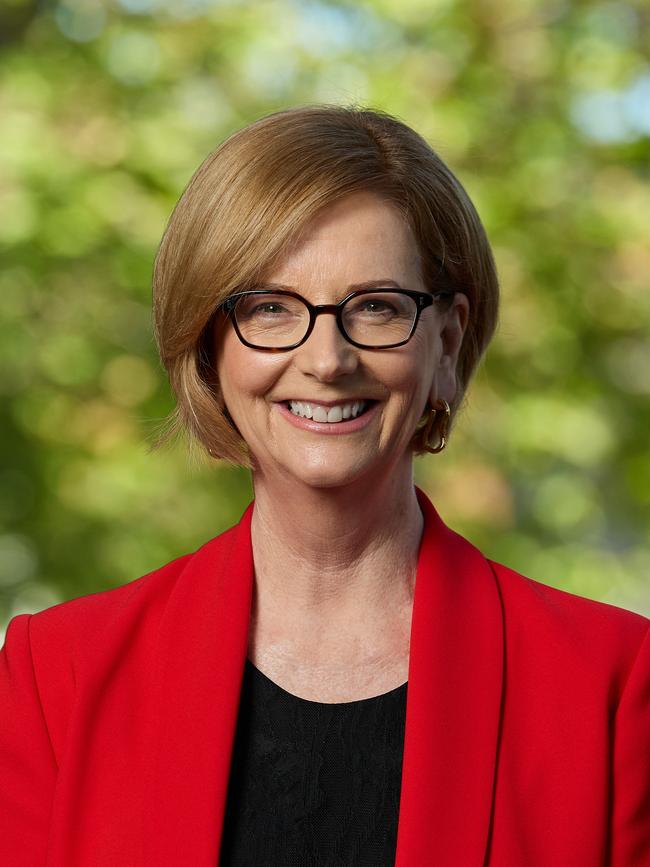
Asked whether her revelations could fuel perceptions she withdrew an almost-finished book to protect a Labor government, Wallace responded: “It’s not like there was an ALP position on that at that time … half of them were hunting Gillard, half of them were supporting her. I’m not at all worried about it. It was a uniquely pressured, vicious situation … I am delighted to be able to explore it properly (in the new book).’’
In the late 1990s, Greer attacked Wallace as a “dung beetle” and “brain-dead hack” for daring to write an unauthorised biography of the feminist provocateur, but Wallace pressed on, and produced a critically admired book.
In contrast, Wallace writes in Political Lives – which largely focuses on relationships between biographers and 20th century Australian prime ministers – that she feared her book could be used to “hit her (Gillard) hard when she and her generally meritorious government were suffering an onslaught unparalleled, in the dual internal and external nature of the attack, in Australian post-war political history – and one certainly unmatched for sheer nastiness.
“It could hit Gillard hard because no biography of a human being, other than the worst pabulum from partisan supporters, could fail to include unattractive or critical elements,” she said.
“Gillard’s life story contained its share of lesser elements. Enemies in the opposition, the government and the media were poised to cherrypick my biography for exploitable stories. In the fevered political atmosphere of that moment, the biography could damage her and, through her, the government. Was this, I asked myself, what a biography should do? I flew home to Canberra and wrote to my publisher to say I had decided to put the biography aside.’’
Now an academic at the University of Canberra, Wallace admitted “no publisher could be happy” about her 11th hour cancellation. Even so, Allen & Unwin “were totally supportive of the decision”, she said.
Wallace stressed “there was categorically no dire bad news about Julia Gillard in the book’’. She said Gillard had agreed “late and reluctantly” to a couple of off-the-record interviews.
As for the issue of self-censorship, Wallace said: “I needed to feel that I was acting ethically as a biographer in that circumstance.’’ Given that she was writing about a politician in real time, “perhaps I was naive in not anticipating all the situations that could unfold during the writing of the book’’.
In a further twist, in 2009 Wallace wrote a stinging review of the authorised biography, The Making of Julia Gillard, by Jacqueline Kent, in The Monthly. She dismissed Kent’s book as a “friendly political quickie” and “a plain-vanilla account of Gillard’s progress from Gillard’s point of view’’.
Clearly furious, Penguin books’ publisher Ben Ball said that while Wallace identified herself as a rival biographer in her review, “it doesn’t explain away the absolute stink-to-high-heaven conflict of interest in getting one biographer to review another”.
Reflecting on the misogyny Gillard endured as PM, Wallace argues in her new book that there remains a “strong” belief in federal political circles that “a woman is less electable as prime minister than a man. It is commonplace in Canberra to hear political professionals and journalists – not all men – say privately that women party leaders are problematic ‘because Queensland’. That’s code for the view that Australians in frontier states won’t vote to make a woman prime minister.’’
She claimed political dinosaurs were “impervious” to the fact former Queensland premier Anna Bligh was popular, while Annastacia Palaszczuk has won three consecutive Queensland elections.
The belief Australians didn’t want a female prime minister was a “self-serving” argument that benefited “blokes”, she said, as they accounted for the majority of those pursuing that role.


